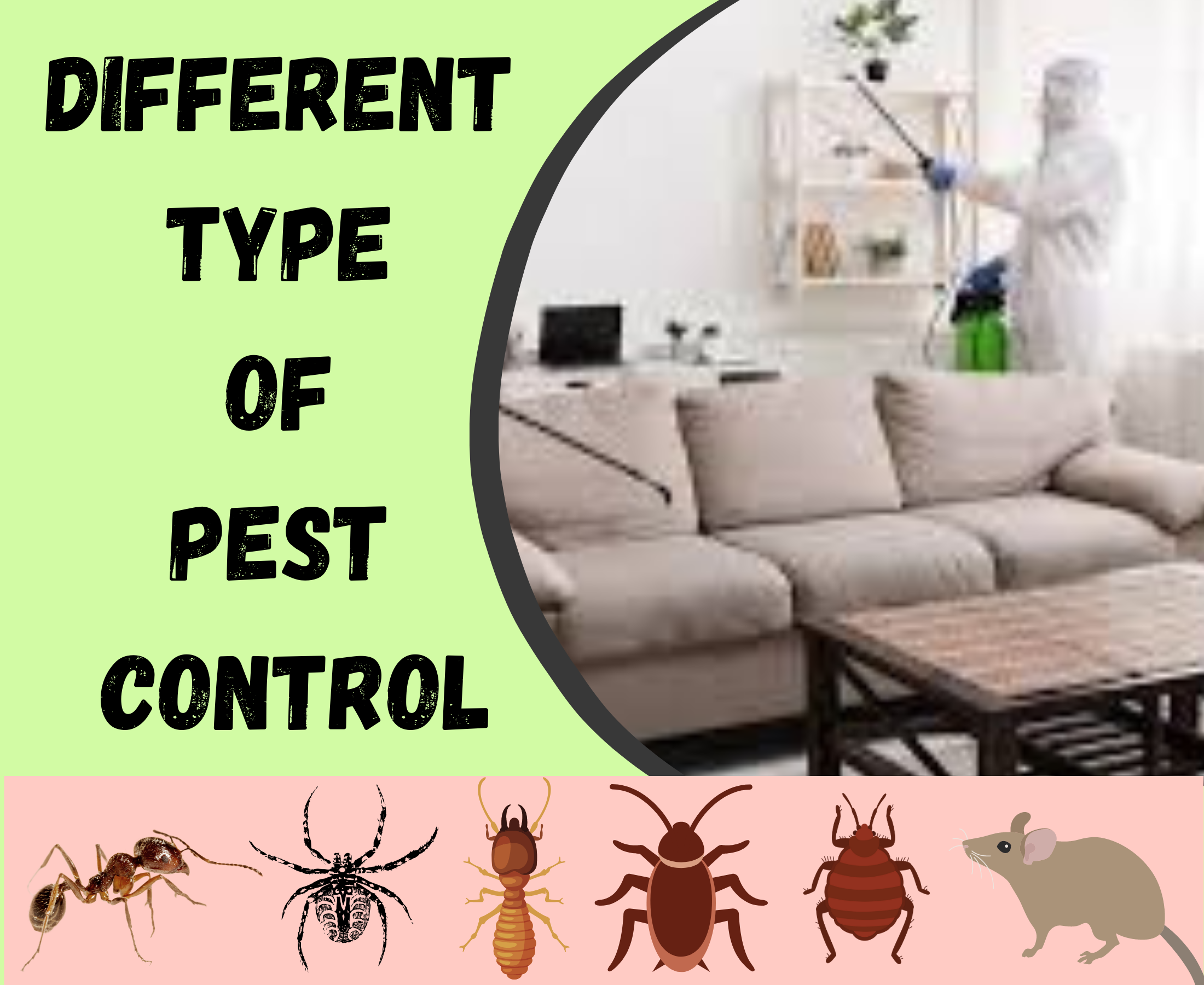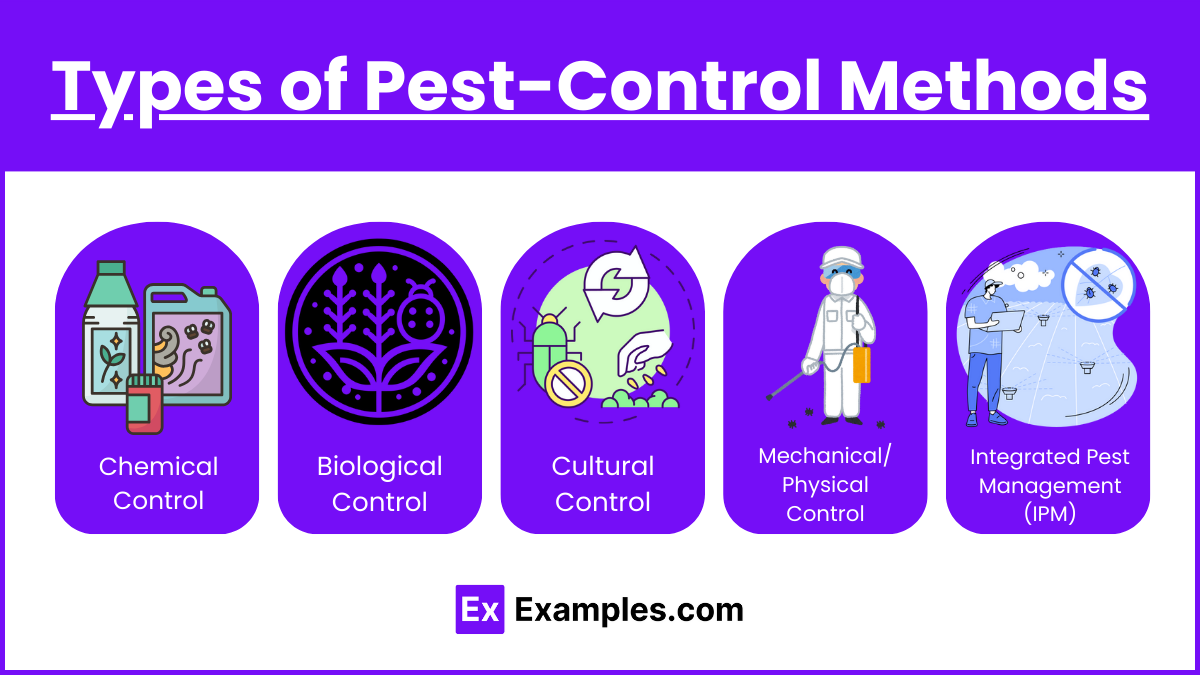The Single Strategy To Use For Pest Control
The Single Strategy To Use For Pest Control
Blog Article
10 Simple Techniques For Pest Control
Table of ContentsAll about Pest ControlExcitement About Pest ControlAll about Pest ControlGetting The Pest Control To WorkSome Ideas on Pest Control You Should Know
Limitations of Chemical Management Be able to examine pest troubles, identify if management is needed, and make suitable suggestions using IPM techniques. Be familiar with various techniques of pest monitoring - their benefits and restrictions.This phase talks about (IPM), a strategy that uses understanding concerning bugs and their, practices, nonchemical techniques, and chemicals to take care of pest issues. Extra details concerning IPM for particular plants is consisted of in phases that focus on those plants. Nonchemical insect control procedures are emphasized in phase 17, "Organic Gardening." Handling birds and creatures is covered in phase 20, "Wild animals." Managing in the yard and garden is covered in chapter 6, "Weeds." Parasites in a garden or landscape may include insects and mites, weeds,, animals, and birds.
Many individuals hurry to pull, hoe, or spray every weed they see. Insects and weeds, however, play a role in the. After planting a yard or developing a lawn, the all-natural procedure of plant sequence begins to restore and nonnative plants. A weed growing in a lawn stands for the initial stage in a series of events that, if allowed to continue, can at some point lead to a forest.
What we call "parasites" belong to a natural system at job. An ecosystem has no parasites. Only human beings think about specific species parasites when they happen where they are not wanted. We will certainly be much more successful in taking care of undesirable varieties when we understand that these organisms comply with foreseeable patterns that we can use to our benefit.
Some Ideas on Pest Control You Should Know
Insects prone to a chemical were rapidly eliminated, leaving immune ones to reproduce and increase. It ended up being clear that chemicals alone would not resolve all parasite problems. Instead, overuse of pesticides created the growth of resistant insects. Researchers started to develop a new technique to pest control. This new method was called incorporated pest management (IPM).
An IPM strategy permits some degree of parasites in the setting. Pests are much less most likely to survive a program that uses several techniques of minimizing their populaces. Integrated bug administration was initial suggested by entomologists due to the fact that insects were the initial team of parasites to confirm hard to take care of with chemicals alone.
A limit is the factor at which activity must be taken. IPM has extended past insects to management of all pest populations: weeds, condition microorganisms, and animals.
What Does Pest Control Do?
Monitoring rather than elimination of parasites is the goal. An IPM plan starts with a cautious evaluation of each insect invasion.
Clover expanding in a lawn may be checked out as an undesirable weed, however as a vegetable it is manufacturing nitrogen for the soil and the flowers are supplying nectar to honey and various other. Tolerance for some weeds might become part of an IPM plan. may be eating the fallen leaves of a plant, yet when they are recognized as the larvae of Eastern tiger swallowtail butterflies, their damage may be tolerated so we can appreciate the beautiful butterfly.

The second crucial tool in bug monitoring is early intervention. Being existing and observant in the yard makes certain early detection. Responding to troubles quickly, before they have time to multiply, needs a much less dramatic intervention. The third crucial device is recordkeeping; tracking what takes place in the garden enables a gardener to acknowledge patterns and make educated choices.
The 7-Second Trick For Pest Control
Many safe, practical, nonchemical additional resources methods of plant defense and parasite administration may decrease or eliminate the requirement to spray. Other methods are most beneficial when used with chemicals. To carry out administration techniques appropriately and to lessen losses, gardeners should understand the sorts of insects that attack plants and recognize pest biology.

Carrying out a soil test and applying only the suggested quantity of plant food and lime makes best use of the benefit to the plant while lessening troubles connected to too much use plant food - Pest Control. Treatment the dirt with a number of inches of compost shields the plant in numerous means: reducing dirt water loss to dissipation, minimizing weed competition, providing nutrients, and producing an appropriate atmosphere for earthworms and bacteria that keep the soil loose for origins and damage down natural product to launch nutrients
If mulch touches the trunk, it can create a way for voles, bacteria, Read Full Report and fungis to assault the plant. Do not use manure or compost that has actually not thoroughly broken down as a top clothing since it can motivate undesirable parasites. Research study recommends that farming is harmful to dirt framework.
The Facts About Pest Control Revealed
If tilling is considered needed, consider doing it in the loss when the life cycles of lots of pests brings them near the surface. At the surface area, insects come to be exposed to the climate as well as birds and various other all-natural opponents. Loss tilling can also ruin pests in plant residues. Usage disease-free and insect-free licensed seeds and plants if readily available.
Report this page